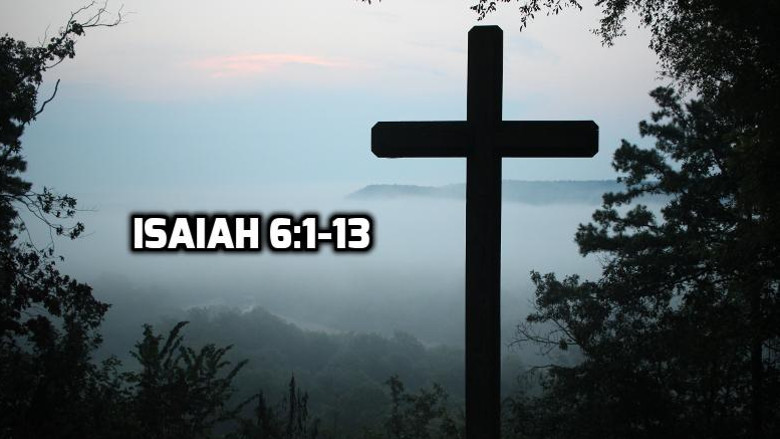Isaiah wrote these prophecies of the Servant about a time when all God’s people are scattered and the Davidic throne has disappeared into the sands of Babylon. Does the exile mark the end of the history of God’s people? Have they forfeited the divine promises made to Abraham?
The Servant Songs are the prophecies of Christ, the servant who will come and suffer for his people. The book of Isaiah contains the fullest revelation of Christ in the Old Testament. These prophecies were written about 700 years before the birth of Christ.
Isaiah in Hebrew means “Yahweh is salvation”. Isaiah was a prophet to the southern kingdom (Judah) both before the fall of the northern kingdom (722 BC) and before the fall of Jerusalem (586 BC).
Historical setting
Biblical Background for Isaiah is primarily found in:
Isaiah 1:1 The vision of Isaiah the son of Amoz, which he saw concerning Judah and Jerusalem in the days of Uzziah, Jotham, Ahaz, and Hezekiah, kings of Judah.
- Uzziah/Azariah 792-740 BC (good)
- Jotham 740-731 BC (good)
- Ahaz 731-715 BC (bad)
- Hezekiah 715-698 BC (good)
See Chart of Kings
The Birth of a Prophet
6:1 In the year of King Uzziah’s death I saw the Lord sitting on a throne, lofty and exalted, with the train of His robe filling the temple. 2Seraphim stood above Him, each having six wings: with two he covered his face, and with two he covered his feet, and with two he flew. 3And one called out to another and said, “Holy, Holy, Holy, is the LORD of hosts, The whole earth is full of His glory.” 4And the foundations of the thresholds trembled at the voice of him who called out, while the temple was filling with smoke. 5Then I said, “Woe is me, for I am ruined! Because I am a man of unclean lips, And I live among a people of unclean lips; For my eyes have seen the King, the LORD of hosts.” 6Then one of the seraphim flew to me with a burning coal in his hand, which he had taken from the altar with tongs. 7He touched my mouth with it and said, “Behold, this has touched your lips; and your iniquity is taken away and your sin is forgiven.” 8Then I heard the voice of the Lord, saying, “Whom shall I send, and who will go for Us?” Then I said, “Here am I. Send me!” 9He said, “Go, and tell this people: ‘Keep on listening, but do not perceive; Keep on looking, but do not understand.’ 10″Render the hearts of this people insensitive, Their ears dull, And their eyes dim, Otherwise they might see with their eyes, Hear with their ears, Understand with their hearts, And return and be healed.” 11Then I said, “Lord, how long?” And He answered, “Until cities are devastated and without inhabitant, Houses are without people And the land is utterly desolate, 12″The LORD has removed men far away, And the forsaken places are many in the midst of the land. 13″Yet there will be a tenth portion in it, And it will again be subject to burning, Like a terebinth or an oak Whose stump remains when it is felled. The holy seed is its stump.” – Isaiah 6:1-13 NASB
- Under Uzziah, Judah prospered politically and economically, but Uzziah became proud and was cut off from the Lord (2 Chronicles 26).
- After Uzziah dies, spiritual decline sets in and political winds of change begin to blow.
- Within a 5 year period, King Uzziah of the southern kingdom died (c. 740BC); The king of the northern kingdom died (Menahem c. 742BC); and in Assyria, the ambitious Tiglath-Pileser came to the throne (c. 745BC).
- In the midst of this political upheaval, Isaiah sees the Lord.
- Isaiah sees God’s sovereignty and God’s glory.
- Isaiah sees his own sinfulness.
- God reveals himself to redeem, not to destroy. He cleanses Isaiah.
- In gratitude and humility, Isaiah dedicates himself to serving God.
For more detail and explanation, please listen to the podcast.
Next: 02 Isaiah 40:1-11 Announcement of the New Kingdom
Series: Isaiah: Servant Songs
Study Resources: Isaiah Bible Study Resources
Photo by Jacob Meyer on Unsplash

